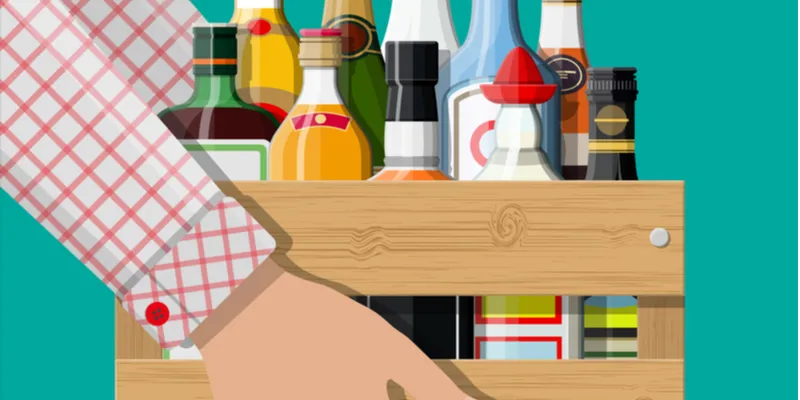From launching a preventive healthcare vertical to making a loss-making liquor company profitable amid the pandemic: the story of Roshini Sanah Jaiswal
Roshini Sanah Jaiswal is a third-generation entrepreneur who is running one of India’s oldest liquor companies, Punjab-based Jagatjit Industries. During the pandemic, she launched a preventive healthcare segment which makes sanitisers that have 24-hours efficacy.
If anything, the very trying and testing pandemic years of 2020 and 2021 taught businesses the art of pivoting and persisting. The two waves of the pandemic resulted in unexpected turn of events almost overnight, and caused deep financial stress and crisis within the business ecosystem, and every other area of life. Companies also had to worry about fixed costs such as employee salaries, rents etc.
While some founders took the online or ecommerce route, others started producing essential goods to keep businesses running. One such example is SwanRose, a preventive healthcare vertical started by third-generation entrepreneur, Roshini Sanah Jaiswal. Roshini also leads operations at one of India’s oldest liquor-making companies - Jagatjit Industries located in Kapurthala, Punjab.
When the COVID-19 pandemic struck, like all entrepreneurs, Roshini started thinking of ways to keep the business running. “When I studied epidemics and war scenarios from the past, to keep the factories alive, I learnt that you must become essential to the government in some way,” says Roshini.
According to her, the team at Jagatjit Industries started reading up recommendations rolled out by the World Health Organisation and immediately started manufacturing sanitisers. As a result, the business never stopped. “Our factories were only shut for 10 days in March 2020.”
However, this seemingly small idea to make sanitisers paved the way for a larger business opportunity - and this eventually led to the inception of SwanRose in April 2020.
Roshini, who is Delhi-based, recalls that every other business had started making sanitisers at that point in time. However, she wanted her brand SwanRose to stand out, and soon found a way in a product line of sanitisers called Just Human, which claims to have a 24-hours efficacy. The sanitisers were launched first in the US and then in India, and Roshini claims the sanitisers have also obtained the United States Food and Drug Administration (USFDA) and Drugs Controller General India (DCGI) clearance in India.
The Just Human sanitisers are available in twin packs of 10ml and 50ml bottles, with price starting at Rs 150. According to Roshini, she is well aware these sanitisers are priced slightly higher than the market price, but the USP is that they have to be applied just once a day. SwanRose has partnered with labs in the US, China and Hong Kong to develop this product. The 24-hour protection molecule is imported from the US.
Just Human sanitisers are available on ecommerce websites such as Amazon and Flipkart. They are also sold through their own website as well 1100 retail outlets across Delhi, Mumbai and Bangalore.
Although an affiliate of Jagatjit Industries, which has an equally interesting story of becoming a profitable business, SwanRose runs as a separate entity.
The royal connect
According to a report by the Indian Council for Research on International Economic Relations (ICRIER), India is one of the fastest growing alcoholic beverages markets globally with an estimated market size of 52.5 billion dollars (about Rs 3.9 lakh crore). The market is expected to grow at a CAGR of 6.8 percent till 2023.
Brands like United Spirits, United Breweries and Radico Khaitan have the top market share. Jagatjit, at the moment, has a market share of more than 4.5 percent.
Bombay Stock Exchange-listed Jagatjit Industries was started in 1944 by Roshini’s grandfather LP Jaiswal. The liquor giant has a royal connection as well.
Maharaja Jagatjit Singh, the king of Kapurthala, was a close associate of the Jaiswal family. “He wanted to create employment opportunities there and so he reached out to my grandfather to start a distillery and even allotted some land,” narrates Roshini.
LP Jaiswal was a passionate entrepreneur. He got the business off to a start and expanded to several branches. In 1953, he set up bottle-manufacturing units for PepsiCo. In 1964, he setup a malt plant. In 1992, he set up a joint venture with Hiram Walker.
Over the years, Jagatjit Industries came to be known for its Scotch, Whisky, Gin, Vodka, Rum, etc including its brands, Aristocrat Premium Whisky, AC Sek C Whisky and Binnie’s Whisky.

From crisis to fortune
Roshini joined the business in 2015 when the company was undergoing a deep financial crisis. She joined as the Chief Restructuring Officer but incorporating changes in the business was extremely difficult.
Roshini had previously worked in the F&B industry establishing franchises of the prominent Hard Rock Cafe chain.
Making a transition from the food and beverage industry to liquor manufacturing meant that she encountered a stumbling block at every step. “First, it is a male-dominated industry. Second, I was a complete novice when it came to manufacturing, which I didn’t do before. These two things were going against me.”
However, she adds that her significant amount of experience in entrepreneurship is what gave her the direction to keep going and make some drastic changes in the business.
“The first year went in understanding the liquor industry which is highly regulated, what with the excise policies, prices and other things,” she adds.
Roshini onboarded a consultant to transform the business and started aligning the entire organisation with the core of the business. “I think we really underestimate the power of soft skills, but it is important to understand the vision of your business and see whether people are really aligned with it or not.”
To curtail the losses, Roshini also shut down operations in major states like Kerala. “We were selling 700,000 cases of liquor a year in this state alone but we were losing money hand over fist because the Government of Kerala hadn't given a price increase to the liquor industry in close to seven years.”
While the cost of goods kept increasing, no increase in the pricing of cases led the business to make an exit from the market. In addition, the work force was trimmed significantly. The company had to let go of 120 employees between 2017 and 2019.
It took almost two years to implement the changes, she says. The business also got an investment of Rs 200 crore from American global investment company Kohlberg Kravis Roberts worth in 2016. "KKR was interested in our brands and believed in our growth strategy and our heritage."
It seemed that the light at the end of the tunnel was not far.
The COVID-19 pandemic
Just when Roshini thought that her challenges were finally coming to an end, the COVID-19 pandemic struck. “In the beginning of 2020, my heart stopped because we were seeing what was happening in Italy and I could foresee the pandemic coming to India,” she recalls.
Although this wasn’t the first time an external force had threatened the life of the business. But the pandemic looked different in terms of the impact it could create, describes Roshini. “I can’t even begin to tell the fear I felt. I almost saw Jagatjit Industries coming to an end.”
Lockdown apart, Roshini was more concerned about the 1,800-workforce. “If something would have happened to them it would have been a huge humanitarian crisis.”
However, manufacturing sanitisers and over producing came to the rescue of the company. “I told the distributors to over-produce and build up inventory of the liquor products.”
This worked to the advantage of the company as just when the liquor shops started to open, Jagatjit was already ready with its products to meet the pent-up demand in the market.”
“Initially, we donated sanitisers to healthcare workers and the police for free. However, a lot of players who wanted to produce alcohol started coming to buy one of its main ingredients- ethanol. That is what also changed the trajectory.”
Today, life has come full circle for Jagatjit Industries. After making losses for almost nine years, the fortunes of the business are finally changing for the better. Its losses have steadily reduced and profits have grown. In FY20, Jagatjit clocked Rs 225.28 crore at a loss of 48.87 percent whereas in FY21, it clocked Rs 420.59 crore at a profit of 5.08 percent.
SwanRose has also clocked more than Rs 6.5 crore since its inception in May 2021.
Going forward, Roshini says that Jagatjit Industries will look at introducing new products in the Scotch category and also increase its production capacity. She is also on a mission to make SwanRose a personal care brand in the next 12 months by introducing 20 more products in the space.
Edited by Anju Narayanan








